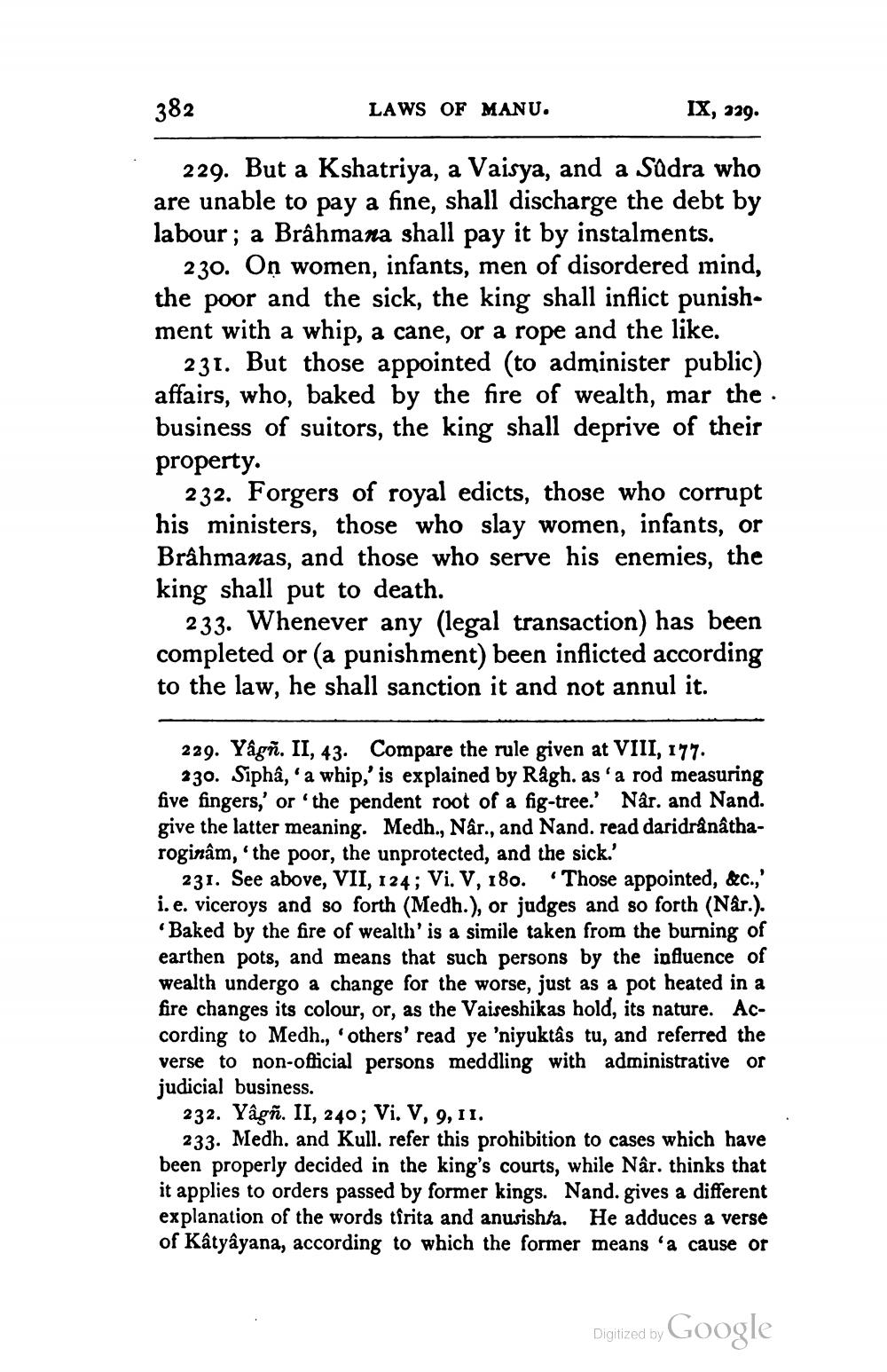________________
382
LAWS OF MANU.
IX, 339.
229. But a Kshatriya, a Vaisya, and a Sadra who are unable to pay a fine, shall discharge the debt by labour ; a Brâhmana shall pay it by instalments.
230. On women, infants, men of disordered mind, the poor and the sick, the king shall inflict punishment with a whip, a cane, or a rope and the like.
231. But those appointed (to administer public) affairs, who, baked by the fire of wealth, mar the business of suitors, the king shall deprive of their property.
232. Forgers of royal edicts, those who corrupt his ministers, those who slay women, infants, or Brahmanas, and those who serve his enemies, the king shall put to death.
233. Whenever any (legal transaction) has been completed or (a punishment) been inflicted according to the law, he shall sanction it and not annul it.
229. Yâgñ. II, 43. Compare the rule given at VIII, 177.
230. Siphâ,' a whip,' is explained by Ragh. as'a rod measuring five fingers,' or 'the pendent root of a fig-tree.' Når. and Nand. give the latter meaning. Medh., Nár., and Nand. read daridranatharoginâm, 'the poor, the unprotected, and the sick.
231. See above, VII, 124; Vi. V, 180. Those appointed, &c.,' i. e. viceroys and so forth (Medh.), or judges and so forth (Når.).
Baked by the fire of wealth' is a simile taken from the burning of earthen pots, and means that such persons by the influence of wealth undergo a change for the worse, just as a pot heated in a fire changes its colour, or, as the Vaiseshikas hold, its nature. According to Medh., 'others' read ye 'niyuktas tu, and referred the verse to non-official persons meddling with administrative or judicial business.
232. Yâgñ. II, 240; Vi. V, 9,11.
233. Medh. and Kull. refer this prohibition to cases which have been properly decided in the king's courts, while Nâr. thinks that it applies to orders passed by former kings. Nand. gives a different explanation of the words tîrita and anusisha. He adduces a verse of Katyayana, according to which the former means 'a cause or
Digitized by Google




